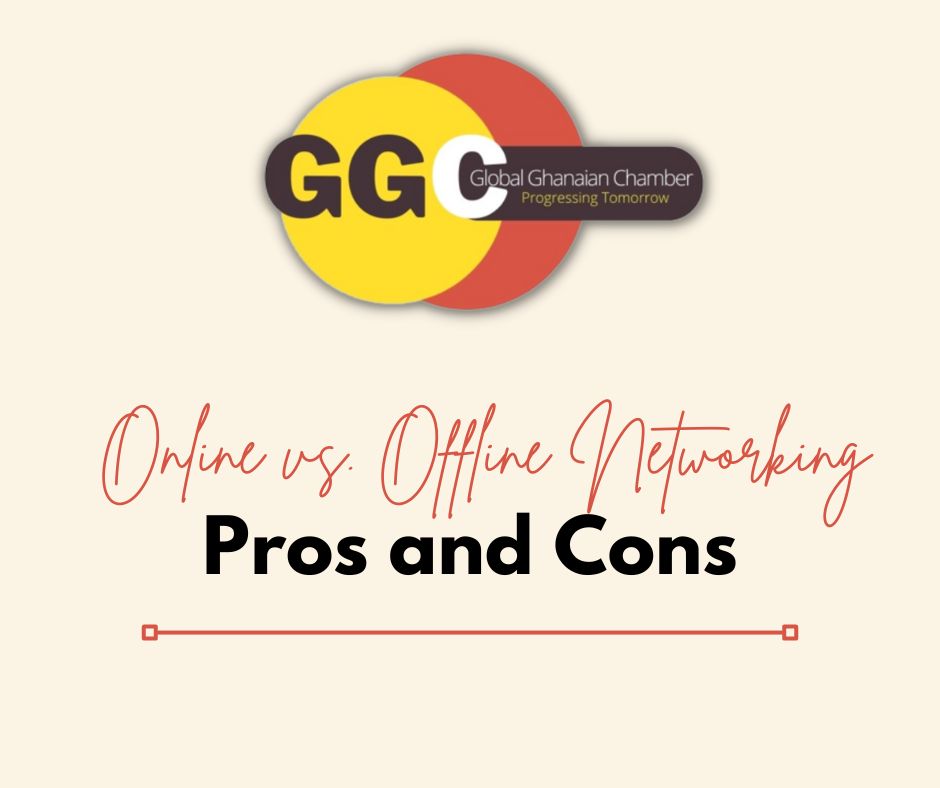
Networking is an essential aspect of professional growth and business development. However, in today’s interconnected world, you have two main avenues for networking: online and offline. Each has its own set of advantages and disadvantages, and the choice between the two depends on your goals, preferences, and circumstances. In this blog post, we’ll explore the pros and cons of online and offline networking to help you make an informed decision on which approach suits you best.
Online Networking:
Pros:
- Global Reach: Online networking platforms like LinkedIn, Twitter, and industry-specific forums allow you to connect with professionals from around the world, expanding your reach significantly.
- Convenience: You can network from the comfort of your home or office, saving time and travel expenses.
- Diverse Connections: Online networks often include a wide variety of professionals, making it easier to find experts in your niche or industry.
- Efficient Information Sharing: You can share your expertise, articles, and resources with a large audience quickly and easily.
- Data and Analytics: Online platforms provide valuable insights into the effectiveness of your networking efforts through metrics and analytics.
Cons:
- Lack of Personal Interaction: Online networking may lack the personal touch and in-depth relationships that can be built through face-to-face interactions.
- Privacy Concerns: Sharing information online can raise concerns about data privacy and security.
- Overwhelm: The sheer volume of online connections and information can be overwhelming, making it challenging to stand out.
Offline Networking:
Pros:
- Personal Connection: In-person meetings allow for genuine, face-to-face connections that can be more meaningful and memorable.
- Trust Building: Building trust often happens more naturally in person, as you can read body language and facial expressions.
- Local Presence: Offline networking can help you establish a strong presence in your local community or industry.
- Networking Events: Conferences, seminars, and industry-specific events offer excellent opportunities to network and learn.
Cons:
- Geographical Limitations: Offline networking may be limited by geography, making it difficult to connect with professionals outside your immediate area.
- Time-Consuming: Attending events and meetings can be time-consuming, especially if they require travel.
- Limited Reach: Compared to online networking, offline networking may have a limited reach, particularly for those in niche industries.
Conclusion:
Online and offline networking each have their unique advantages and disadvantages. The choice between the two should align with your goals, preferences, and circumstances. Many professionals find a combination of both approaches to be the most effective strategy, leveraging the strengths of each to build a diverse and robust network. Ultimately, successful networking is about building meaningful relationships, regardless of the platform you choose, and nurturing those connections over time.





